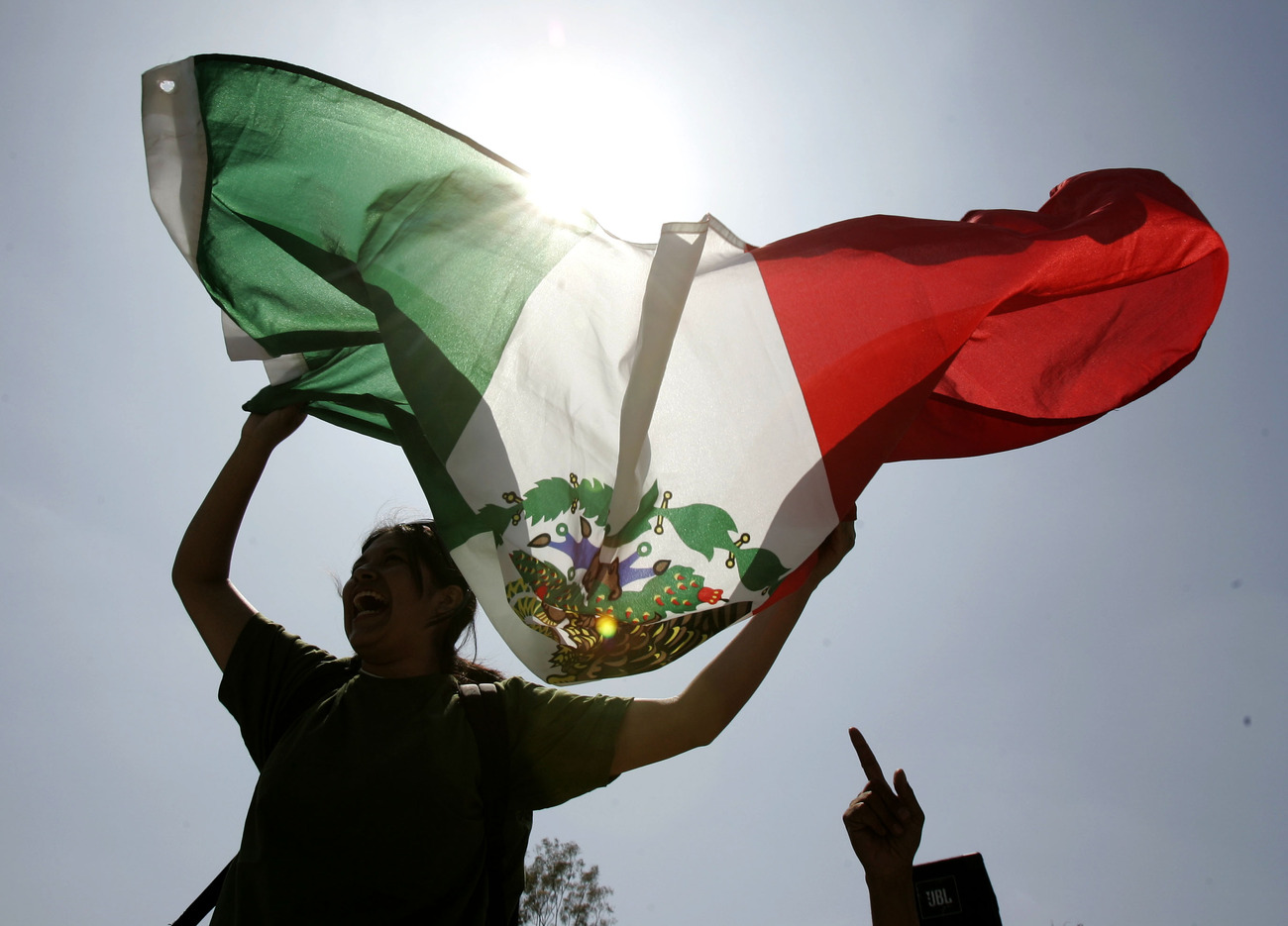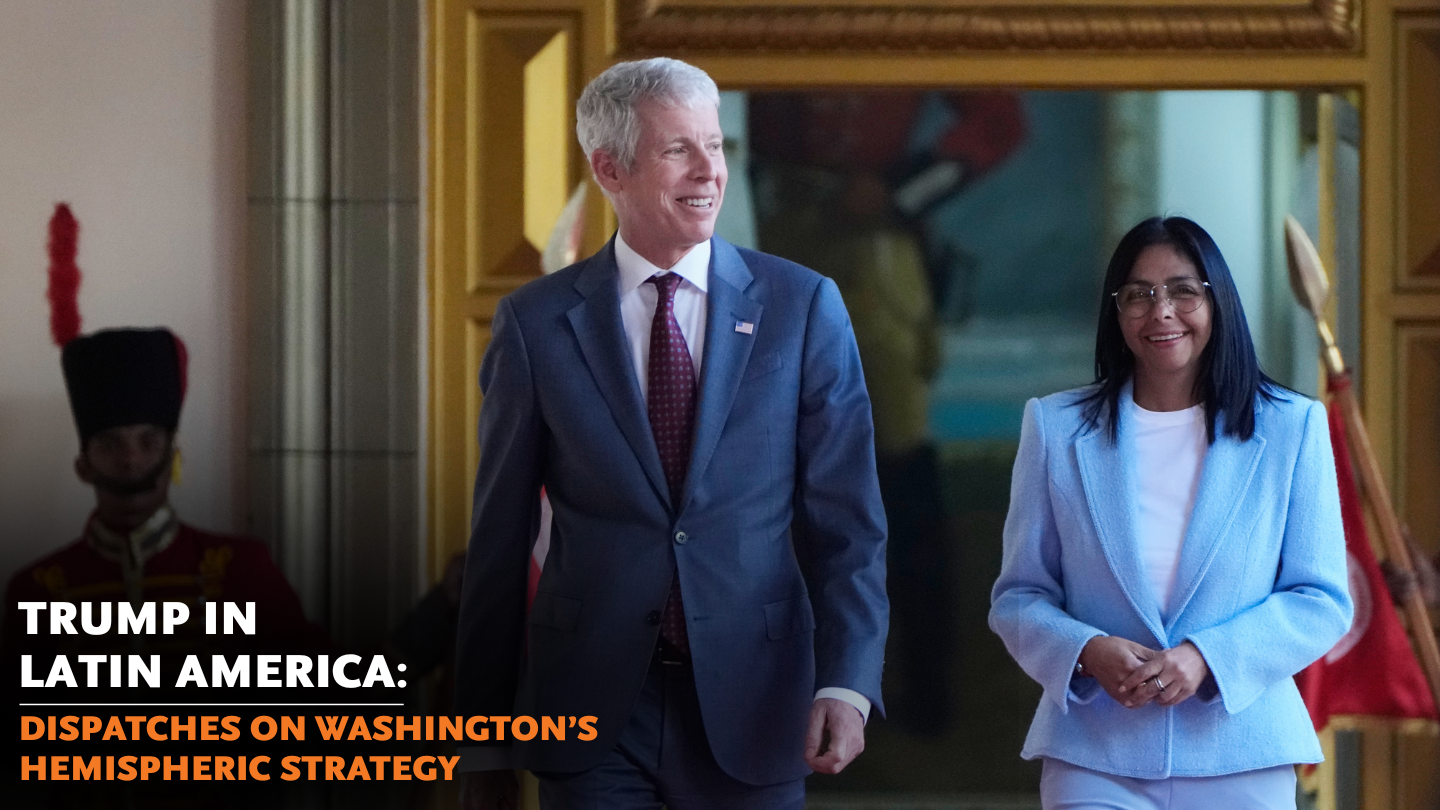Exclusive Interview: Jorge Castañeda, Former Foreign Minister of Mexico
Exclusive Interview: Jorge Castañeda, Former Foreign Minister of Mexico
Former Mexican Foreign Minister Jorge Castañeda, author of Ex Mex: From Migrants to Immigrants, played a firsthand role in attempts to forge a U.S.-Mexican immigration deal. He says reform could come in time, but U.S. leaders remain hesitant: "Who wants to take a leadership position on this and then get slammed in Iowa?"
In an interview, former Foreign Minister of Mexico Jorge Castañeda talks about his new book Ex Mex: From Migrants to Immigrants with AS/COA Online Managing Editor Carin Zissis. Talking before an AS/COA event, Castañeda, who played a firsthand role in attempts to pass a U.S.-Mexican immigration agreement during the Fox administration, says passage of immigration reform will depend on election of a
The author and political analyst, now a professor of politics and Latin American studies at
AS/COA: In the book, you discuss how immigration reform became central to Mexican foreign policy after [former President Vicente] Fox came to power. Meanwhile, in the United States there has been this turn towards nativism. Given the implied conflict here, what will it take for immigration reform to move forward?
Castañeda: I think that what’s important to point out is that the current nativism or backlash in the United States is very recent. It’s as recent as 2001, 2002, or even 2003. But from 1999 to 2003, I think there was a great deal of sympathy for the tenets of immigration reform or an immigration agreement. There were forces like the AFL/CIO, like the Federal Reserve, like many other sectors that were all of a sudden becoming more sympathetic to the notion of it.
So in the same way that things were particularly conducive then and particularly not conducive now, I hope that things can go back again to more or less where there were five years ago. Why? Well because I think when a president who has the same sympathy for the issue that Bush has—but who also has more political capital than Bush has—comes around to it, the type of coalition that he was able to forge as recently as a few months ago will be perhaps forged again, but will be victorious in the sense that there will be a strong president with the same type of coalition ranging from moderate republicans to most of the democrats.
AS/COA: Obviously Bush looked forward to and was very supportive of immigration reform, but he wasn’t able to do it in his first term and then he wasn’t able to do it in his second. Do you think there’s a danger that this will continue with whomever comes into power next in the United States?
Castañeda: Well, it’s hard to say. Obviously, I hope it doesn’t happen that way. I hope that whoever wins the election, particularly if it’s someone like [former New York City Mayor Rudy] Giuliani or [Arizona Senator John] McCain or any one of the Democrats, will be in favor of reform along the lines described from the very beginning of the book and along the lines of Bush’s grand bargain. I think the votes in the Congress will be there. What they have to understand about whether Americans will or won’t do this is that there really isn’t much choice. It’s either regression—with all the dangers and the outrages of separating women from their children, of deporting people, of raiding houses—or it’s reform. There really is no other way.
It takes leadership because most politicians in the United States don’t want to lead on this. They look at McCain and they say, "Look what happened to him." Who wants to take a leadership position on this and then get slammed in Iowa?
AS/COA: [Mexican President Felipe] Calderon is finishing his first year in office. One of the things you discuss in the book is that he stepped back somewhat from the U.S. debate on immigration reform. Could you talk a little about what his approach has been, how it has differed from Fox’s, and what you see coming down the pike?
Castañeda: Well, I’m not sure I know exactly what his approach is because there are days when he says that he wants to reduce the importance of immigration on the agenda and there are days he gives very forceful, sometimes even strident statements—obviously for the domestic audience in Mexico—that get reported on in the United States and cause somewhat of a commotion here. There are days when he says he wants to wage the battle of public opinion in the United States and there are days when he says he doesn’t want to get involved in it.
What I do know is he is the first Mexican president in many decades not to travel to the United States during his first year in office, either to Washington or to New York or to anywhere else, which is quite remarkable. I think he also believes, probably rightly so, that there is no hope for any reform or agreement before mid-2009, but that, on the other hand, perhaps he’s underestimating the straits in which the communities find themselves in today; how much they are victims of hostility, aggression, raids, deportations, no-match letters, detentions, and that they need the only president they have, which is the president of Mexico, to defend them. And if he doesn’t do it no one else in his government will, and if no one in the government does, well, private citizens like myself or a few others—like Fox—may do so, but you’re not going to find a lot of other people willing to do this on their own if the Mexican government doesn’t want to step up to the plate on it.
AS/COA: The title of your book hints at a shift in the past few years that circularity of Mexicans migrating back and forth has ended. Do you think immigration reform will or could lead to a return to circularity?
Castañeda: I tend more and more to believe that we will not go back to the type of circularity that we had before, let’s say, 1996. Although I insist that circularity was interrupted because of Clinton’s fence and policies of 1996, a lot of experts think that it was also interrupted by other deeper trends, such as people seeking out and finding non-seasonal labor further away from the border. If you’re working in the Imperial Valley or the San Fernando Valley, it’s kind of easy to go back and forth. If you’re working in Washington state or Iowa or New Hampshire, it’s complicated to go back and forth.
I think that we will have a sort of two-track system. On the one hand, people who are temporarily but who are temporary in a legal way, who spend six months of the year here because that’s what they want to do, not because that’s what they are required to do. On the other hand we will have the people who have been here or who will come and stay here and become immigrants.
One point in the book I thought was very interesting was where you talk about a conversation you had with Tony Blair a few years ago. He said that all developed countries face an immigration dilemma and that this reform between the U.S. and Mexico could have served as a model for other countries. Do you think there is any type of immigration reform happening anywhere else in the world that could be used as a model here?
Castañeda: Not really, and as a matter of fact a lot of countries are facing exactly the same problems that Mexico and the United States face. That is, on the one hand they feel they are being swamped by unregulated immigration in Western Europe and elsewhere in the world, and on the other hand they also need that immigration more than ever. Spain, for example, was a country of emigration for many years until the early 1990s. Today it is a country whose population practically depends exclusively either on immigration or the birthrate among immigrants. Spain’s population growth the last 10 years is practically due only to immigration. Three or four million people have arrived over the last 10 or 15 years, giving Spain an enormous amount of economic dynamism, but also creating the tensions of immigration, whether it’s legal or not. In the case of Spain there is a lot of legal but there is also a lot of undocumented immigration. They have a very similar problem to the one the U.S. has. Other countries that are in similar situations are Holland and Denmark.
Of course in Europe there is the issue of Islam. The difference between Americans and Mexicans is dwarfed by the difference between Europeans and many of the immigrants in Europe who come from countries where Islam is very important, whether it’s sub-Saharan Africa or Turkey. Mexicans are Catholics and not all Americans are Catholics but, at the end of the day, there is not a different world view. I’m not sure the U.S. is fully acknowledging how much it benefits from a situation where it is much easier to deal with a population that has a lot of similarities with its own. Europe has an immigrant population that contributes enormously to the economy of Western Europe, enormously to the diversity and the richness of European life, but that does have a very different world view.
AS/COA: In a lot of U.S. media there are certain preconceived notions about Mexican immigrants and some of their customs. One example is the idea that when immigrants come here they have a lot of children, but one of the things you touch on in your book is that there is actually a declining birth rate in Mexico. Do you see there being a possibility to change some of these perceptions?
Castañeda: I think it’s a question of leadership and question of time. Leadership means leadership on the part of American institutions or politicians or agencies that should be out there doing this, whether it’s the Latino community, whether it’s the Catholic Church, or whether it’s liberals or unions. But I also think the Mexican government has a very important role to play in this.
On the other hand, if you look at where the problems are in the U.S. you will see that a lot of them are in regions where there had not been a Mexican presence before. You don’t have a lot of problems in California or Texas or Chicago. But over the last 10 years the Mexican population has spread out all over the United States. Americans in Iowa, in Ohio, in South Dakota are all of a sudden faced with something that they don’t know and they react like everyone in the world does in the face of something new and different that they don’t know: They don’t like it. But I’m sure that they are not worse Americans than others and so that they will realize, as time goes by, that their new neighbors, their new friends, new colleagues at work, new employees, or new employers are people they can get along with very well and they shouldn’t feel threatened by them. On the contrary, these new neighbors, new friends contribute enormously to their well-being. So I think with time and leadership things will change.








